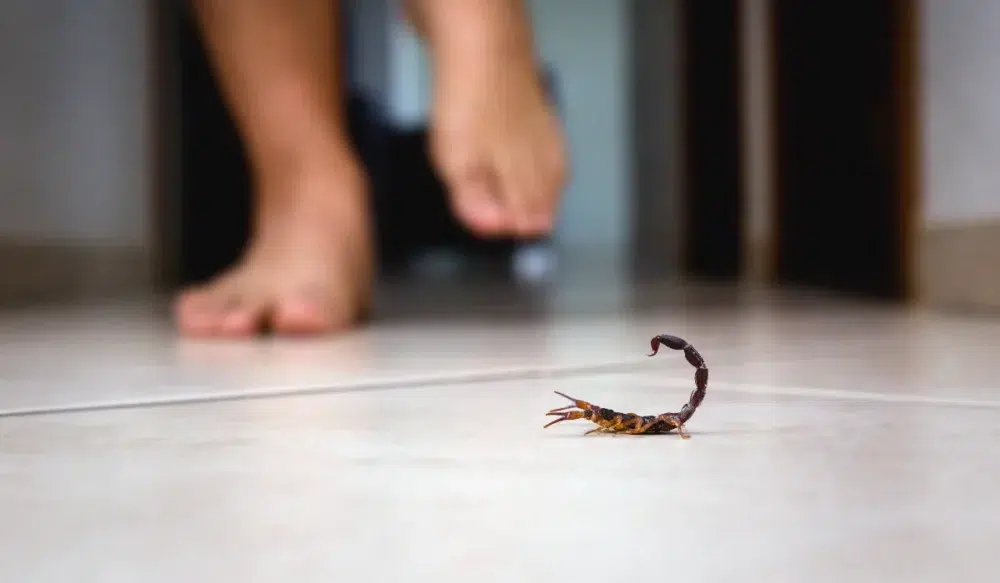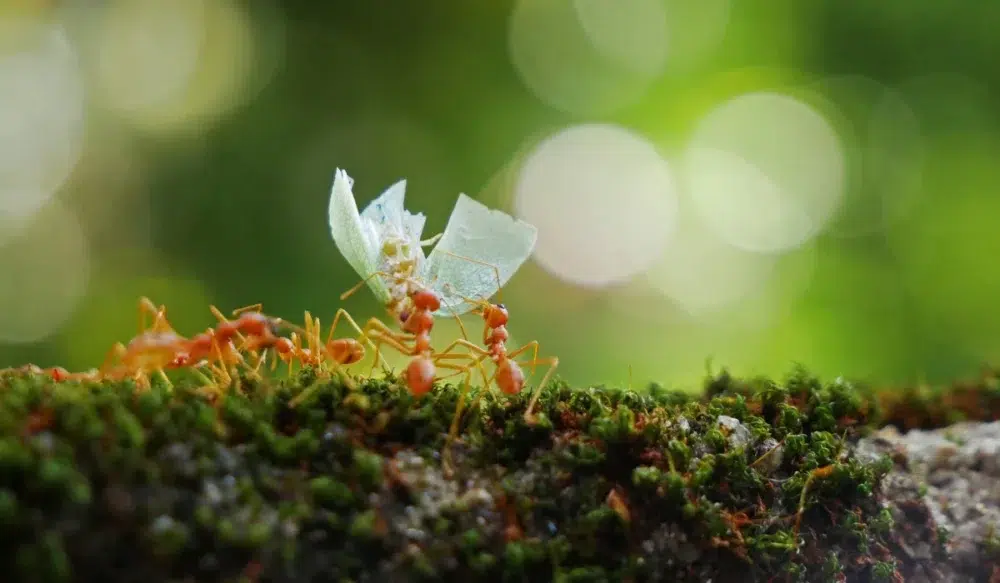We have several pest birds in Phoenix, but pigeons are in a class all their own. They are a common sight on city streets, ledges, rooflines, and wires. It can be easy to forget that these beautiful birds can cause more than a small amount of trouble. When you see them on your roof or appearing in your yard, it is a good idea to take action. Join us today as we examine some of the many problems these unassuming birds create, what you can do to discourage pigeon activity on your Phoenix property, and when time is the right time to contact a professional for . As always, we want to remind you that you can always get quick answers to your questions by contacting us. Your Green Home Pest Control team is here to serve you. We’re happy to give you advice and share with you some of the service options available to address pigeons in places they shouldn’t be. Please don’t hesitate to reach out to us at any time. With that, it’s time to get started! Here is your quick guide to residential pigeon prevention in the Phoenix area.
The Many Problems Pigeons Can Pose For Homeowners
When dealing with any pest, it is critical to understand why control is necessary. It is particularly important for pests, like pigeons, that are kind of nice to have on your property. Let’s be honest. Most Phoenix residents like to watch the birds. Some folks even bring birdseed, crackers, or potato chips with them when relaxing in a park or throw french fries out the window while eating fast food during lunch breaks. We’re used to attracting birds. Therefore, you need to know why it is important to try to keep some birds away.
Most of the issues related to pigeons have to do with their droppings. Pigeons don’t have a place to do their business. They go wherever they’re perched. Here are just a few ways pigeon droppings may cause problems.
- Pigeon droppings are slick when wet. If droppings land on walkways, stairs, or lawns, they can create a slipping hazard during and after rainfall. Stairs are a particular issue as serious injury can occur.
- Bird droppings, in general, are corrosive. The reason is that the birds don’t urinate. They excrete uric acid in their droppings. When droppings land on building materials, they can cause damage from corroding painted surfaces to wearing away at concrete. Pigeons cause millions of dollars in damage to properties in the United States each year.
- Droppings are unsightly. Even if they were not able to damage your property, they can create a mess that needs to be cleaned up.
- Bird droppings can contain disease-causing organisms and pigeon droppings are worse than most because of the unsanitary things they eat. Pigeons are often called flying rats. Just like a rat, a pigeon has no trouble going straight to rotting food and walking amongst unclean things in a dumpster. Some of the many diseases associated with these pest birds are histoplasmosis, cryptococcosis, psittacosis, toxoplasmosis, and salmonellosis. Histoplasmosis is linked to pigeon droppings as it is spread when fecal matter dries and becomes airborne. The other diseases are spread by contact between these birds and sanitary surfaces or food sources.
- Bird droppings can clog air conditioning units and other mechanical devices in homes.
- Pigeons often get underneath solar panels on homes. When they congregate around solar panels, their droppings can cause the panels to malfunction and can corrode them over time.
- When pigeons perch on wires over walkways or decks, their droppings can fall on you, your family, or guests on your property.
We were not kidding about pigeon droppings. Most of the problems you’ll have with pigeons are related to their waste material. But there are more issues to consider. Here are a few more ways pigeons cause trouble.
- When they enter and exit roosting areas, they can cause damage to soffits and other building materials.
- When pigeons perch or roost on rooflines and ledges, they can clog gutters and create serious moisture problems, such as wood rot, mold, and a strain on structures.
- When pigeons leave nesting materials in ventilation systems or power boxes, they can present a fire hazard.
- When pigeons choose your property, they will reproduce and grow their population, which will increase the number of problems they can create.
- Pigeons are a general source of noise pollution.
There is more we could say on this topic, but for the sake of brevity, let’s move on to the primary goal of this article. Let’s look at what you can do to control pigeons on your property and prevent them from deciding to create a roost. We’ll start by looking at what attracts in the first place.
What Attracts Pigeons To Certain Homes In Phoenix?
A pigeon is only concerned about three things. It wants to find a place to live, water to drink, and food to eat. If you understand how a pigeon may find these things it desires, you’ll have an idea of how you can deter pigeon activity on your property.
Pigeons roost in many places. Out in the wild, they roost inside caves, on cliff edges, and along rocky crags. In an urban landscape, they’ll nest under bridges, on ledges, and under roof overhangs. When they come onto your property, there are a few hiding places that could attract them if they are available.
- They may roost underneath your roof line where one roof hangs over another.
- They may enter through a damaged soffit and roost inside your eaves.
- They may enter your attic through a gap, hole, or broken window pane.
- They may get underneath your solar panels or some other roof structure.
Pigeons primarily drink water, but they’re not picky. They’ll drink sugary liquids if they’re left out. But, it is the water in your yard that is most likely to attract them.
- They’ll drink water from a clogged gutter.
- They’ll drink out of a puddle next to your home.
- They’ll get a drink from a toy dump truck or kiddie pool.
- They’ll drink from a pool of water trapped on a tarp covering something in your backyard.
Pigeons eat a wide variety of foods. If you have lots of food in your backyard, you’ll provide a banquet for pigeons. Some of the foods they eat may surprise you, including:
- Pigeons eat bird seeds. No surprise there.
- Pigeons love grains and are strongly attracted to yards where folks leave bread out for other birds to feed on or leave bread next to an outdoor grill.
- Pigeons eat certain grasses and green leafy vegetables. They’ll also feed on herbs and certain weeds.
- Pigeons love fruits and berries. If you grow these in your backyard, it is critical to protect them.
- Pigeons can eat out of a dog or cat food dish. These provide excellent protein sources.
- Pigeons commonly eat spiders, lizards, and insects for protein. A yard with lots of pest activity can provide a feeding ground for pest birds.
- Pigeons get into garbage and eat many food items you throw away. They are not picky and will eat a variety of available foods.
Now that you have some ideas about factors that could be attracting pigeons let’s turn our attention to ways you can specifically use this information to and other pest birds on your property. The secret to bird control is counteracting their natural behavior patterns. Here’s how it works.
How To Prevent Pigeon Activity Around Your Phoenix Home
There are primarily three ways to get control of pigeons and prevent bird activity around your Phoenix home. You can take steps yourself, you can contact a licensed pest management professional, or you can do both. The most effective is the latter.
What can you do to control pigeons on your property?
- First and foremost, don’t feed the birds, and teach your kids not to feed the birds. If you put bread out to attract certain wild birds, pest birds will also show up. If you have bird feeders, pigeons are attracted to those as well. Consider getting rid of feeders or moving them well away from your home so pigeons don’t get the wrong idea.
- Manage your trash to prevent bird problems. Make sure your receptacles have tightly fitting covers and don’t overfill your receptacles so you don’t give birds access to the bagged trash inside. Clean your receptacles to remove odors that lure pigeons and other wild animals to your trash. Get your trash to the curb each week to prevent trash from sitting and generating an odor.
- Do you have a grill and an outdoor dining area? Make sure to clean up after you’re done eating to remove condiments and other foods that are highly attractive to pigeons. Keep in mind that pigeons are incredibly intelligent and are able to get into many food products, even when placed in packaging or containers.
- Address potential water sources pigeons can use as drinking holes. They are as happy to drink out of a clogged gutter or puddle as they are water collected in a kid’s toy dump truck. Stow away any items that can hold rainwater, and get your gutters cleaned.
- Make repairs to your home to remove gaps that pigeons might exploit to enter your attic or get into your eaves. If you have roof soffit intersections, use netting or hardware cloth to block access so pest birds can’t use these hiding places.
How can a licensed professional help you with deterring pigeons?
- The most common bird control method used by licensed professionals is stainless steel spikes. Don’t worry; these spikes don’t hurt pigeons or other pest birds. They are a visual deterrent and make it difficult for pigeons to land on areas where they are installed. A pigeon that flies near a roofline with bird spikes will keep on flying.
- Another common method is installing bird netting. A professional is trained to properly install netting to keep birds out of vulnerable spots. Netting is used for small and large jobs. It is quite versatile.
- Bird wire is often a simple deterrent, though not simple to install. When installed by a professional, bird wire creates an unstable surface for pigeons, and they will prefer to congregate elsewhere.
- If you have pigeons in your attic or some other sensitive zone, live traps are the solution. Your professional can trap them and remove them from your property.
In many cases, depending on the property, professional control is enough on its own. But some properties have unique attractants that need routine maintenance. If this is the case for you, a mixture of personal and professional bird management might be the best solution.
When Is It Time To Call The Professionals For Pest Birds In Phoenix?
You don’t have to wait until pigeons are creating a problem on your property. Professional bird control is often used to control birds proactively. We can inspect your property and alert you to any potential roosting locations, conducive conditions, and areas where pigeons may perch. Based on our findings, you can choose which bird deterrent will work best for you. Keep in mind that the deterrents we install will do more than keep pigeons away. You’ll have protection for all of the common pest birds in our Phoenix service area.
Contact Green Home Pest Control for . We use a mixture of bird spikes, bird wire, bird netting, exclusion mesh, and live trapping to remove pest birds and keep pest birds away. Connect with us today and tell us about your bird concerns. We can provide you with many answers before we even schedule a service visit and evaluate your property. Navigate to our contact us page and fill out the short form or give us a call. We are here to help you find the best solutions to all of your pest concerns.
Request Your Free Estimate Today
Complete the form below to request your no obligation estimate.


